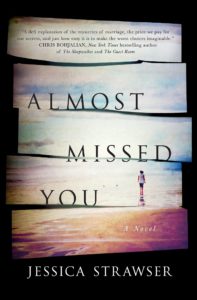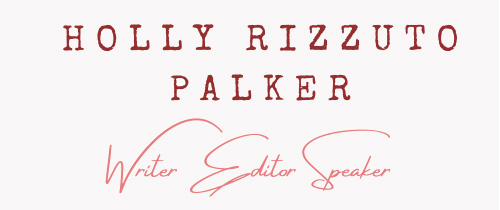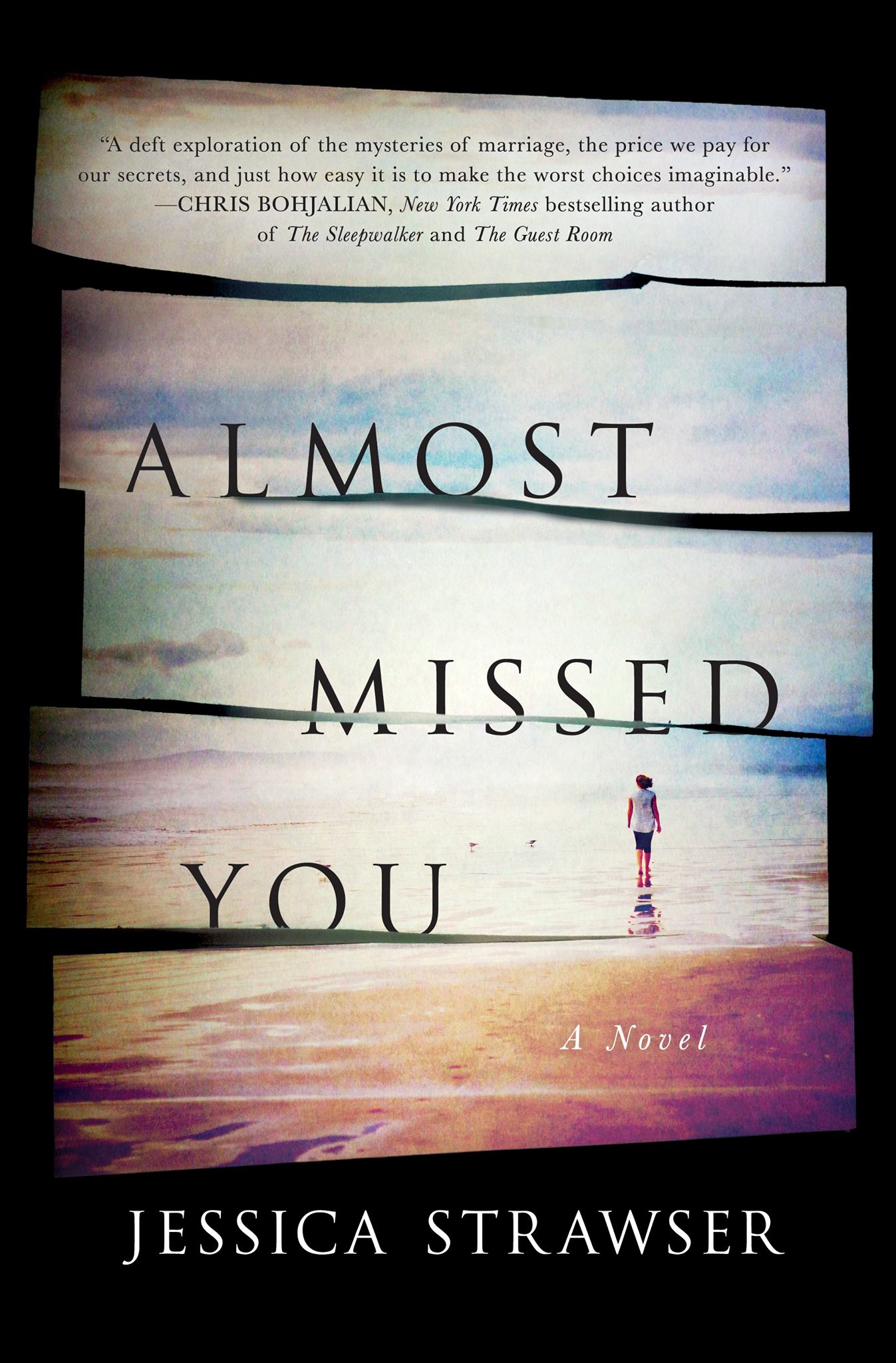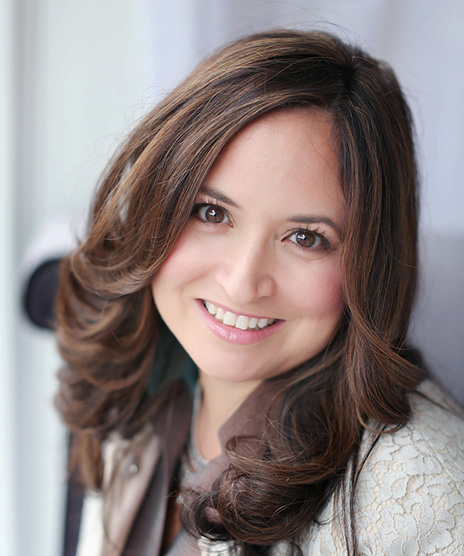Click here to read Q & A in Brain, Child Mag
Holly Rizzuto Palker Interviews Jessica Strawser on her debut novel, Almost Missed You.
 ALMOST MISSED YOU by Jessica Strawser, is an intriguing novel involving a husband and two-year-old son disappearing while on a family vacation. I’m not sure how Jessica created this deliciously suspenseful book with so much else on her plate (she is the Editorial Director of Writer’s Digest magazine, and she and her very supportive husband are the parents of two children under age five).
ALMOST MISSED YOU by Jessica Strawser, is an intriguing novel involving a husband and two-year-old son disappearing while on a family vacation. I’m not sure how Jessica created this deliciously suspenseful book with so much else on her plate (she is the Editorial Director of Writer’s Digest magazine, and she and her very supportive husband are the parents of two children under age five).
As a mother to three young children myself, I couldn’t help but catch up with Jessica to ask her some questions about her novel, her family, and her writing journey.
- One of the most horrific experiences I can imagine would be for one of my children to go missing. What specific parenting moment sparked the idea for your premise?
Fortunately, there was no parenting moment that sparked the idea for my premise, but rather it grew out of a fascination with the idea of “meant to be” and the role of good/bad timing in an otherwise fated relationship. I wanted the relationship to be called into question in a way that would blindside everybody, and that’s where the more horrific premise of the husband running off with the child came from.
- I’m sure you struggle with the balance between career performance and being a good mom. What makes a good mom?
I think every parent struggles with this, and I certainly wouldn’t hold myself up as an authority on what makes a good mom, though I do so try to be one. I always tell my children that being their mom is my most important job—they know where I stand. All any of us can do is love our children, keep their best interests at the forefront of our minds, and do our best.
- What experience did you draw on or scenario did you imagine that gave you the ability to believably portray the anguish Violet must’ve felt when she discovered Bear was missing?
I think it would be all too easy for any mother to imagine that anguish—it’s one of the topmost comments I’ve gotten from readers so far, in fact.
- Violet learns a lot about Finn throughout the course of your novel. Have you ever been in a relationship where you discovered you really didn’t ‘know’ the person. How did this affect you?
I’ve heard stories along those lines from people I know, and of course have read them from strangers, but fortunately it isn’t something I’ve experienced myself. Really there was very little in this novel that was autobiographical, which is part of what made it so enjoyable to write. I had an earlier, unsold novel that was inspired in part by a tragic circumstance in real life, and that writing took an emotional toll. I can also acknowledge from a craft standpoint that I may have been too close to the material. It was freeing, after years on that project, to write something that was pure imagination.
- What is your view about the treatment of mental illness in America?
I took enough psychology credits for a minor when I was in journalism school, which of course covered only the tip of the iceberg, but certainly we could all benefit from more awareness and more support.
- The name Bear is very unique. Why did you choose it for Violet’s child?
I just like the name, though Bear Grylls (the outdoor survival expert) is the only one I know of in real life. Some early reviewers have randomly noted their dislike for the name and so I suppose it’s lucky I didn’t choose it for either of my real children!
- You write wistfully about Asheville, NC. When in your life did you spend time there? Was it a visit or did you live there for an extended period?
I have only visited Asheville, mostly en route to points further south from Cincinnati, but it’s one of my favorite places. Statistically (if I’m not mistaken), they have more sunny days than anywhere else in our region of the country, and I love the art and the nature and the mountain air and the music and the whole warm feel of the town. Any chance I get to stop there for a night, I do.
- How did you seamlessly weave the non-linear structure and various points of view together in ALMOST MISSED YOU? Why did you choose to use these devices?
In order to get the whole story in ALMOST MISSED YOU, we need all three perspectives, because no one character knows the whole story at the outset. It was great fun trying to discern which points of view were key to reveal certain pieces and to put them all together like a puzzle. I’m not an outliner, and I had only a general idea of where I was going when I started, but I’d write whatever scene was most vivid to me, regardless of chronological order, and then later I made myself a timeline and better tracked the reveals at the revision stage.
- How did you keep the reader in suspense while still giving her enough information to stay hooked?
I was hyper aware of what was being revealed and when, both to the other characters and to the reader, particularly in the revision stages. I also wanted to leave certain things to the reader’s imagination, to really invite the reader to participate in the world of the story.
- I can barely find more than a few minutes to write each day with my busy family life. How and when were you able to finish this book with two young children running around and a full-time job?
I write mostly when they’re asleep and the house is quiet. It does take a lot of discipline, as I’m often tired myself, but I also have a wonderfully supportive spouse who helps to pick up the slack on nights when I guiltily shut the door to my writing room with the kitchen still not quite cleaned up from dinner.
- How did your commitment to writing this book affect your family?
I wanted to show my children that it’s possible to go after a lifelong dream and achieve it, that hard work pays off, and that the creation of books (which they dearly love—bedtime stories are our mutual favorites) is a beautiful thing. The book is dedicated to them, and my oldest, at least, who (at five years old) is more able to understand what’s happening, is enormously proud. I think he was more excited when my author copies arrived than I was!
- Which women’s fiction authors influenced you?
I’m influenced by authors across all genres, some of my favorites being Jodi Picoult, Chris Bohjalian, Anne Tyler, Liane Moriarty, David Sedaris, Maggie O’Farrell and Alice Walker.
- How long did it take you to write ALMOST MISSED YOU from your first word on paper to publication?
This summer will mark three years since I began my first draft.
- How often do you write and for how many hours?
It depends on what kind of deadline I’m on (or what kind of roll I’m on—sometimes I’ll take a whole vacation day from my full-time job just to write in a quiet house), but typically 5 days a week, at least, most often for 90 minutes to two hours a day.
- What did you edit out of this book?
This book was a rare case for me where the editing involved a lot more adding than cutting. Typically, it’s the other way around, but in this case, I can’t think of anything of note that was cut.
- How did your career as the editor of Writer’s Digest shape the way you wrote ALMOST MISSED YOU?
Consider that in the course of editing WD, I’ve read each issue cover to cover no fewer than five times—that’s earnest, thorough repetition of written instruction and inspiration that has fueled my writing in ways both intentional and subconscious. The many conversations I’ve had along the way with bestselling authors (for the cover interviews I often conduct) and our contributing writing instructors alike have given me access to some of the best insights into the writing life around, straight from the sources. I could hardly underestimate its influence on me, and my work there has certainly been an asset to my writing life outside of the office.Al


